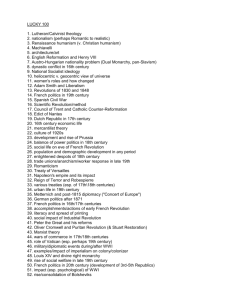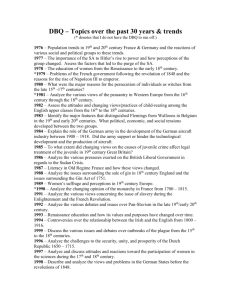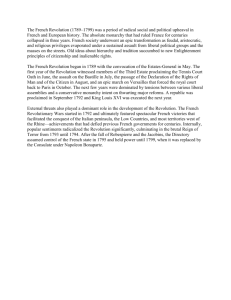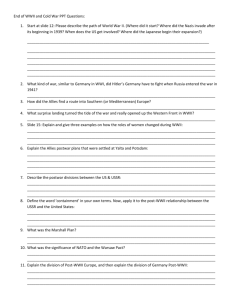The Lucky 100 terms, ideas, events Below are the last 50 of the
advertisement
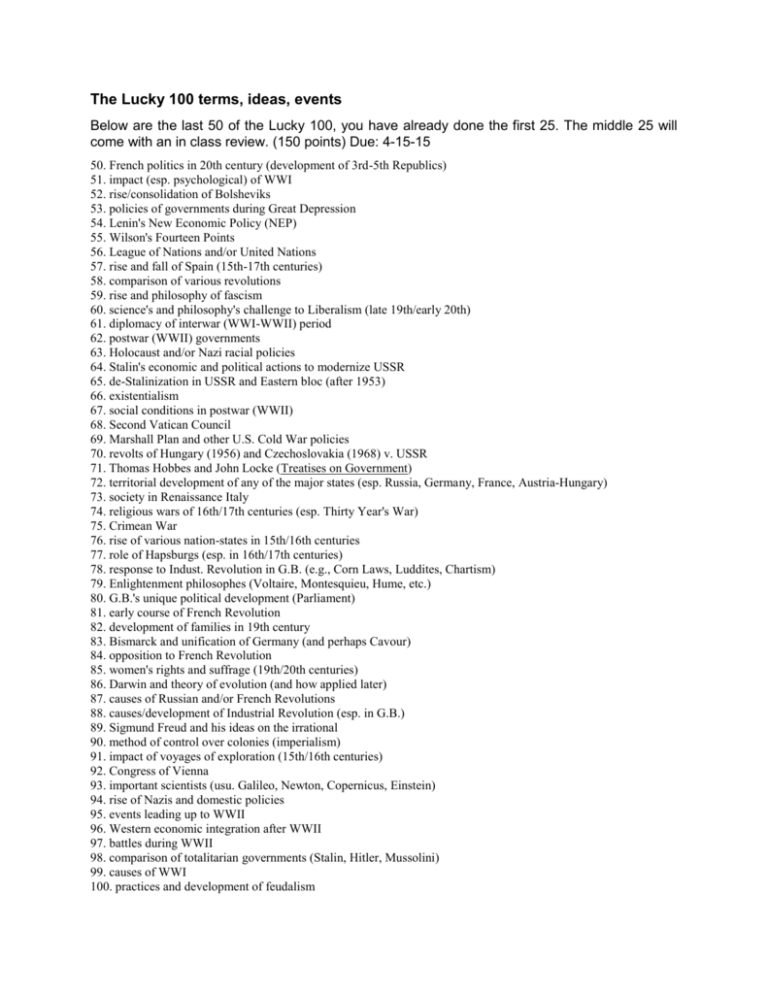
The Lucky 100 terms, ideas, events Below are the last 50 of the Lucky 100, you have already done the first 25. The middle 25 will come with an in class review. (150 points) Due: 4-15-15 50. French politics in 20th century (development of 3rd-5th Republics) 51. impact (esp. psychological) of WWI 52. rise/consolidation of Bolsheviks 53. policies of governments during Great Depression 54. Lenin's New Economic Policy (NEP) 55. Wilson's Fourteen Points 56. League of Nations and/or United Nations 57. rise and fall of Spain (15th-17th centuries) 58. comparison of various revolutions 59. rise and philosophy of fascism 60. science's and philosophy's challenge to Liberalism (late 19th/early 20th) 61. diplomacy of interwar (WWI-WWII) period 62. postwar (WWII) governments 63. Holocaust and/or Nazi racial policies 64. Stalin's economic and political actions to modernize USSR 65. de-Stalinization in USSR and Eastern bloc (after 1953) 66. existentialism 67. social conditions in postwar (WWII) 68. Second Vatican Council 69. Marshall Plan and other U.S. Cold War policies 70. revolts of Hungary (1956) and Czechoslovakia (1968) v. USSR 71. Thomas Hobbes and John Locke (Treatises on Government) 72. territorial development of any of the major states (esp. Russia, Germany, France, Austria-Hungary) 73. society in Renaissance Italy 74. religious wars of 16th/17th centuries (esp. Thirty Year's War) 75. Crimean War 76. rise of various nation-states in 15th/16th centuries 77. role of Hapsburgs (esp. in 16th/17th centuries) 78. response to Indust. Revolution in G.B. (e.g., Corn Laws, Luddites, Chartism) 79. Enlightenment philosophes (Voltaire, Montesquieu, Hume, etc.) 80. G.B.'s unique political development (Parliament) 81. early course of French Revolution 82. development of families in 19th century 83. Bismarck and unification of Germany (and perhaps Cavour) 84. opposition to French Revolution 85. women's rights and suffrage (19th/20th centuries) 86. Darwin and theory of evolution (and how applied later) 87. causes of Russian and/or French Revolutions 88. causes/development of Industrial Revolution (esp. in G.B.) 89. Sigmund Freud and his ideas on the irrational 90. method of control over colonies (imperialism) 91. impact of voyages of exploration (15th/16th centuries) 92. Congress of Vienna 93. important scientists (usu. Galileo, Newton, Copernicus, Einstein) 94. rise of Nazis and domestic policies 95. events leading up to WWII 96. Western economic integration after WWII 97. battles during WWII 98. comparison of totalitarian governments (Stalin, Hitler, Mussolini) 99. causes of WWI 100. practices and development of feudalism
